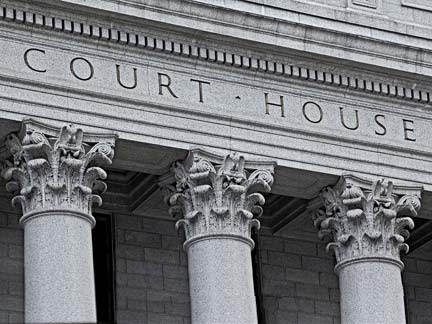A potential client was very upset and offended today when I told him I would not handle his case “pro bono.” While I felt bad about the predicament the client was in, the case was not one where pro bono service was appropriate.
Pro bono service is more than just “free” work. It is a volunteer contribution by an attorney of her specific legal knowledge, skills, and abilities for the “public good.” Public good includes furthering access to the judicial system for all citizens, righting societal wrongs and injustices, advocating for those who have no voice, and being strong for the weak in the face of abuse by the strong. Pro bono work is often provided when there are no other viable options to rectify a situation. Many times, the public and even attorneys forget pro bono service does not mean “free because I want it to be.”
Pro bono service is a moral or ethical duty an attorney fulfills for the betterment of her community, not just a single individual served in one case. While pro bono service often benefits an individual in a specific case, that service benefits the community by making it a better place for every citizen. This is why we most commonly hear of and see pro bono service in cases involving abused children, domestic violence, and combat veterans. Society is harmed, as a whole, when we do not protect our children, stop violence against women and children, or serve the needs of those who protected us.
There are two general misconceptions about pro bono service:
1) All attorneys MUST do pro bono service; and
2) If you don’t have any money, an attorney will handle your case for free.
Much ado is made about attorneys doing pro bono work. More than any other profession, attorneys openly pressure each other to provide pro bono service and the public openly expects attorneys to provide it. However, there is no legal requirement attorneys provide pro bono service. Pro bono service is generally done out of the self-imposed moral or ethical obligation of the legal profession. This self-imposed moral or ethical obligation arises from the knowledge that lawyers are often the keys to the court. The court is the only branch of government open to hear and resolve problems for ALL citizens regardless of their race, creed, color, gender, religion, monetary status, or political beliefs. While many mandatory State Bar associations encourage pro bono service by imposing reporting requirements, few, if any, strictly require members to provide pro bono services. Some voluntary bar associations may require certain pro bono service of members, but attorneys are not obligated to join those organizations.
Sometimes, individuals are given an attorney for “free.” These include individuals accused of crimes or individuals subject to civil proceedings that can result in removal of their Constitutional rights (involuntary commitment for mental illness). However, these attorneys are not “free.” Most of these “free” attorneys are paid for by the State. This is because the Constitution requires legal representation to prevent government abuse of the system and to protect the rights afforded all citizens, including the individual subject to the proceeding. Even though a “free” attorney may be available, individuals are always free to retain and pay for an attorney they choose.
When you ask an attorney to take your case for free, you are asking the attorney not only to work for free, but to support their staff in doing so. A request for pro bono services is like a request for a charitable contribution. Like any person asked to give a charitable contribution, an attorney must weigh the amount of work your case may require from her (the requested charitable contribution) against your resources or options for resolution elsewhere, your ability to assist in the matter, your ability to pay for the costs (filing fees, investigators’ fees, court reports, etc.) associated with your case, the firm’s resources available in your case, and the public good in the community if she takes your case pro bono. Not every request for “free” work deserves pro bono service. And, unfortunately, even if a case deserves pro bono service, not every attorney is in a position to provide it.
Because of the difficulty in determining the merits of requests for pro bono service and often the overwhelming need for service in a particular area, a variety of legal services organizations have been created. While many attorneys provide pro bono service through their individual offices, many provide it only through these organizations, which collectively provide countless hours of pro bono service to their communities. If you do ask an attorney for free legal work and she says she is unable to, it is likely because she is already providing pro bono service in your community in other cases or through legal service organizations.
If you have limited resources and need the assistance of an attorney, you can contact your state’s bar association (the entity that licenses all the attorneys in your state) and ask for a list of legal service organizations in your area who may be able to provide free or low cost legal assistance to you. In some states, such as Montana, there are programs that allow attorneys to provide legal service to individuals of limited means that do not qualify for pro bono service at a cost based on their income. In addition, many states have court-approved “self-help” legal forms for particular kinds of cases such as divorce, child custody, and probate.



